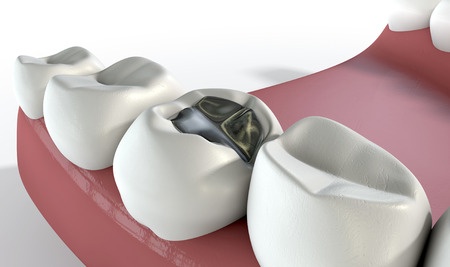No one likes having cavities. They can cause incredible amounts of pain and sensitivity, and even lead to worse issues in surrounding teeth as you start to avoid touching the affected tooth so as to not cause any sensations to flare up. However, most cavities can be easily repaired with the use of fillings.
Fillings have been around for more than 150 years, according to the Food and Drug Administration. This has helped save uncountable teeth – no doubt in the millions – during the past century and half. During the filling process, a dental amalgam is used to fill up the space where your tooth has formed a hole, closing off the access point to outside bacteria and food particles and preventing further nerve damage or tooth decay. With such a lengthy track record of use, we know within a reasonable level of certainty that fillings are a perfectly safe and sound way to fix cavity problems.
There are two main types of amalgam used in dental procedures today. The first is the most traditional – silver amalgam. So named for the silver color, these fillings don’t actually contain much silver. Instead, the filling materials is roughly 50 percent elemental mercury, with the balance a mixture of tin, copper and – unsurprisingly – silver. In modern procedures, these fillings are most commonly used for the back teeth, like molars and wisdom teeth, as the silver can be quite noticeable in teeth located toward the front of the mouth.
 The second option is composite filling, which was created to be a more cosmetically appealing alternative to silver amalgam. This filling has a tooth-like color, and is perfect for filling in cavities in teeth in the front of the mouth. This material is also often used to repair chipped, cracked or broken teeth, as well as creating artificial tooth material to close gaps between two widely spaced teeth.
The second option is composite filling, which was created to be a more cosmetically appealing alternative to silver amalgam. This filling has a tooth-like color, and is perfect for filling in cavities in teeth in the front of the mouth. This material is also often used to repair chipped, cracked or broken teeth, as well as creating artificial tooth material to close gaps between two widely spaced teeth.
With both materials, fillings can often be done in a single appointment. If closing a cavity – especially if the cavity has worked deep into the tooth – heat and cold sensitivity will be heightened for a few days to weeks after your filling, but will go away after your mouth gets used to the newly filled tooth. One of our dentists can answer any questions you have and go over your full range of options for your specific situation.
Don’t put off having a dentist check your sore or painful tooth. Acting now can prevent the problem from worsening and relieve the pain or problems you’re having faster. Call Genesee Dental at 585-343-1113 today to schedule your next appointment or use our convenient online request form to get in and see us!
